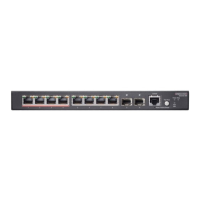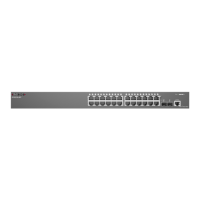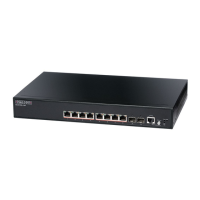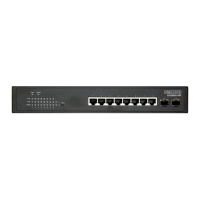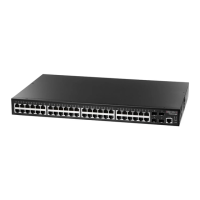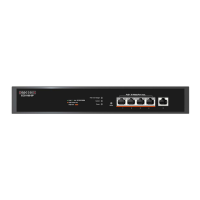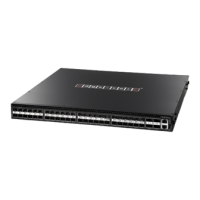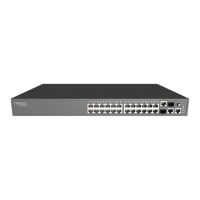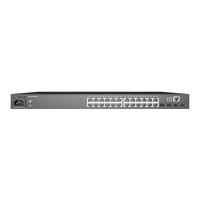Chapter 13
| Power over Ethernet Commands
– 399 –
Command Usage
◆
If the power demand from devices connected to the switch exceeds the power
budget setting as determined during bootup, the switch uses port power
priority settings to control the supplied power. For example:
■
A device connected to a low-priority port that causes the switch to exceed
its budget is not supplied power.
■
If a device is connected to a critical or high-priority port that would cause
the switch to exceed its power budget as determined during bootup, port
power is provided to the port only if the switch can drop power to one or
more lower-priority ports and thereby remain within its overall budget.
Power will be dropped from lower-priority ports starting in reverse
sequence from port number 24.
■
If sufficient power cannot be freed up for a critical or high-priority port by
turning off power to lower-priority ports, power will not be supplied to the
newly connected device.
◆
If a device is connected to a port after the switch has finished booting up and
would cause the switch to exceed its budget, power will not be provided to
that port regardless of its priority setting.
■
If priority is not set for any ports, and PoE consumption exceeds the
maximum power provided by the switch, power is shut down in reverse
sequence from port number 8 or 24.
Example
Console(config)#interface ethernet 1/1
Console(config-if)#power inline priority 2
Console(config-if)#
power inline
time-range
This command binds a time-range to a port during which PoE is supplied to the
attached device. Use the
no
form to remove this binding.
Syntax
power inline time-range
time-range-name
no power inline time-range
time-range-name - Name of the time range. (Range: 1-32 characters)
Default Setting
None
Command Mode
Interface Configuration

